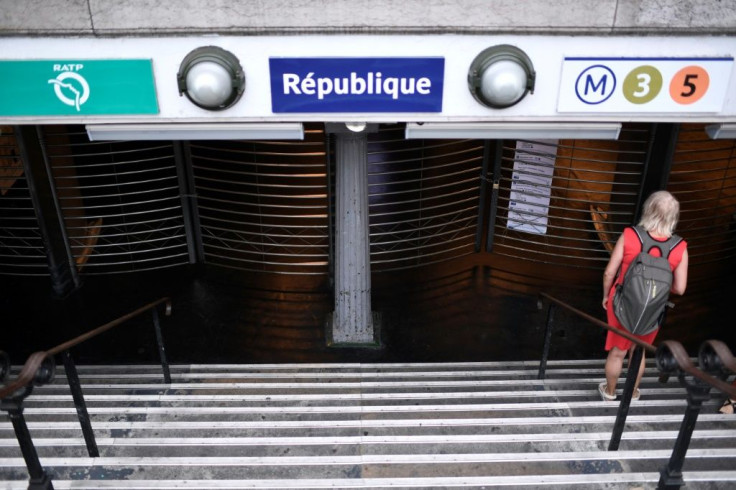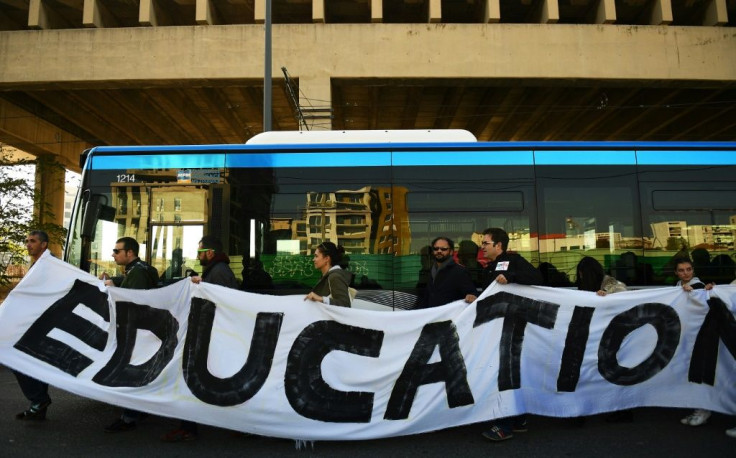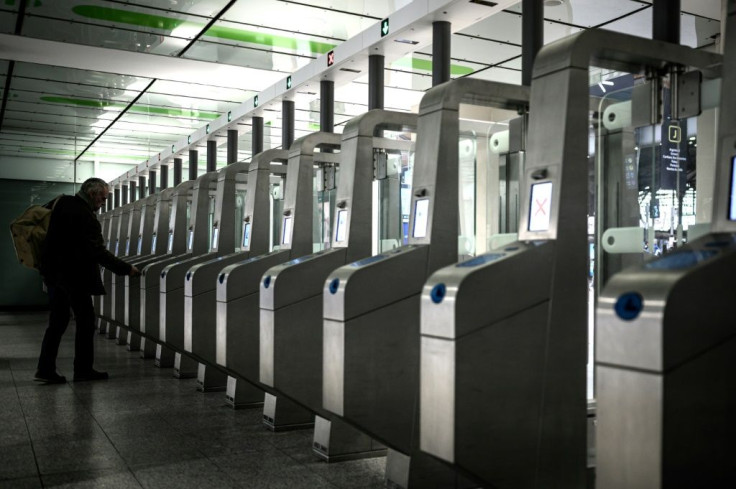France Braces For Shutdown As Macron Clashes With Unions

France was Wednesday preparing for one of its biggest nationwide strikes in years with stoppages by transport workers and teachers expected to paralyse the country in an intensifying showdown between President Emmanuel Macron and unions.
Some 90 percent of high-speed trains have been axed, most of the Paris metro will be shut, hundreds of flights cancelled and the majority of schools closed in Thursday's strike over Macron's planned pension reforms.
The strike -- which is open-ended and could last several days -- has drawn comparisons between the struggle between government and unions in November-December 1995 when the country was paralysed for some three weeks.
Workers across France will have to work from home or find alternative ways to get to work using car-sharing services, rental bikes or e-scooters.
The strikes will be a major test of whether Macron, who came to power on the back of a promise to transform France and has also sought a prominent place on the international stage, has the political strength to push through his vision.

The president is regarded as having seen off the threat posed by the "yellow vest" protesters whose weekly demonstrations against lack of equality shook France from November last year.
But their anger could feed into the strike movement called by the unions and a transport strike on September 13 that caused gridlock in Paris might prove a harbinger of things to come.
"It will be a Black Thursday in transport," prophesied the Le Parisien daily.
But the Le Monde daily argued that channelling the anger of the "yellow vests" protest movement represented not just an opportunity but also a risk for the unions, who could lose control of the industrial action.

"The unions have embarked on an adventure that has little chance of achieving its aim by forcing Emmanuel Macron to give up the reform," it said in an analysis, arguing that "2019 is not 1995".
Speaking to reporters at the NATO summit in Britain, Macron said he would not comment on a domestic issue while at the event.

On the Paris metro underground train system, 11 of the city's 16 lines will shut down completely Thursday, with only the two fully automated lines running as normal.
Rail operator SNCF said 90 percent of high-speed TGV trains and 80 percent of regional trains across the country would be cancelled, while international services like the Eurostar and Thalys would be severely disrupted.
According to Health Minister Agnes Buzyn health service workers were determined to ensure uninterrupted care, with some caregivers planning to sleep in their hospitals.
Education Minister Jean-Michel Blanquer said he expected 55 percent of teaching staff to strike nationwide Thursday, with 78 percent walking out in Paris, and just 30 percent of schools being able to open.
With some air traffic controllers also walking out, flag-carrier Air France said it was axing 30 percent of its internal flights and 15 percent of short-haul international routes.
British low-cost carrier EasyJet has cancelled 223 domestic and short-haul international flights and warned others risk being delayed.
Macron wants to implement a signature campaign promise that would see a "universal" retirement system.
It would do away with 42 "special regimes" for sectors ranging from rail and energy workers to lawyers and Paris Opera employees, which often grant workers higher pensions or early retirement.
But unions say the changes would effectively require millions of private-sector workers to work beyond the legal retirement age of 62 if they want to receive the full pension they have been promised.
Prime Minister Edouard Philippe, who has acknowledged French workers will gradually work longer, is set to unveil details of the reform on December 12.
Interior Minister Christophe Castaner said Wednesday that 245 demonstrations were expected nationwide, warning that a radical fringe of demonstrators could cause trouble.
Paris police chief Didier Lallement said that some 6,000 members of the security forces would be deployed in the capital alone with 180 motorbikes used so they can respond fast to any rioting.
Two major demonstrations are planned for Paris that will converge on the Place de la Nation, with officials ordering Paris businesses along the routes to close on Thursday.
© Copyright AFP 2024. All rights reserved.




















